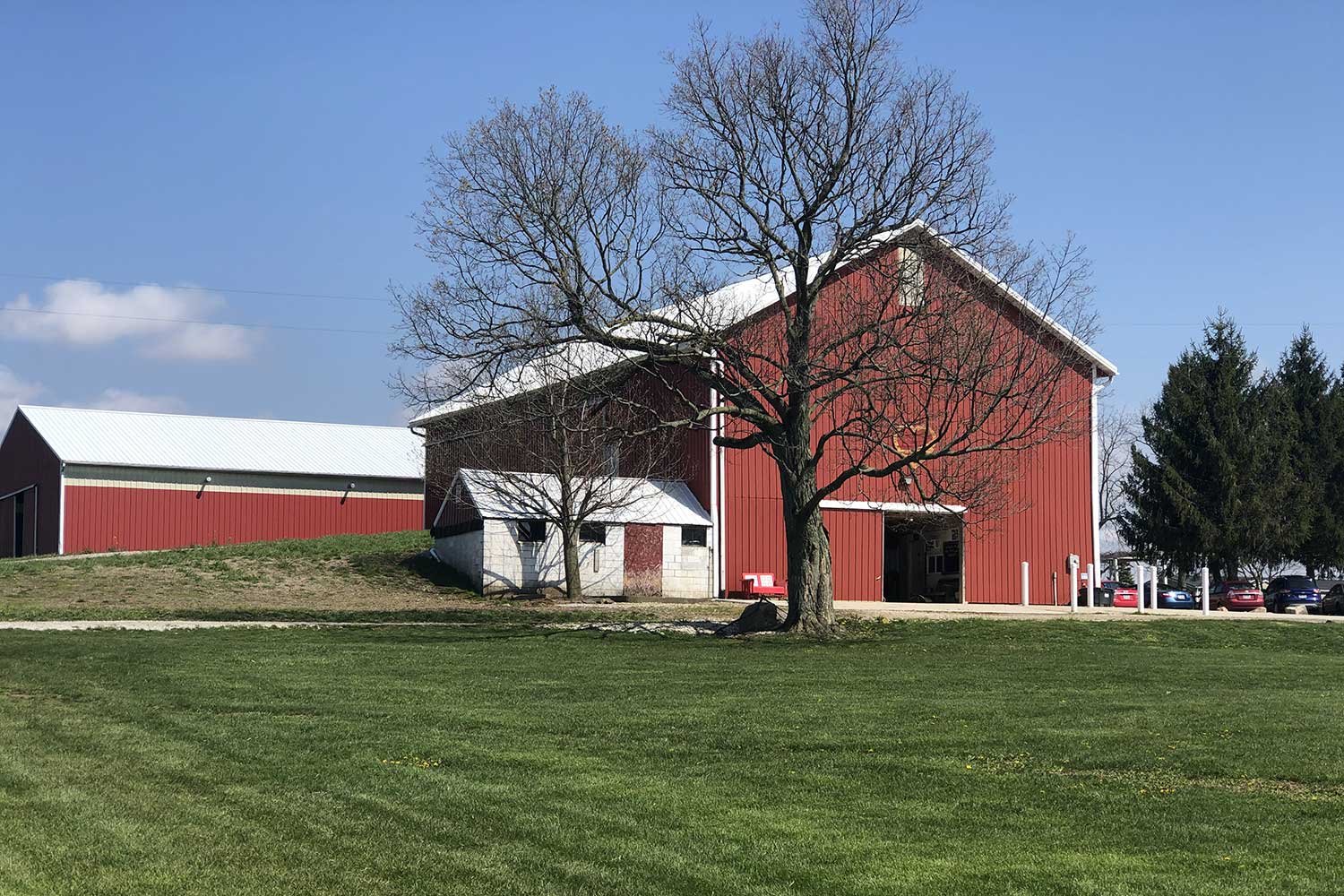Overview
Christian Children's Home of Ohio is a mental health treatment center for people seeking treatment near Wayne County. As part of their treatment modalities for recovery, Christian Children's Home of Ohio provides couples/family therapy during treatment. Christian Children's Home of Ohio is located in Wooster, Ohio, accepting cash or self-payment for treatment.
Christian Children's Home of Ohio at a Glance
Payment Options
- Cash or self-payment
- Medicaid
- Medicare
- State-financed health insurance plan other than Medicaid
- Private health insurance
Assessments
- Comprehensive mental health assessment
Age Groups
- Children/adolescents
- Young adults
- Adults
- Seniors
Ancillary Services
- Case management service
- Court-ordered outpatient treatment
- Education services
- Family psychoeducation
- Psychosocial rehabilitation services
Treatment At Christian Children's Home of Ohio

Conditions Treated
Mental health treatment:
Mental health services are essential during treatment for drug and alcohol addiction, whether you receive treatment in an inpatient or outpatient setting. While receiving inpatient care, you can expect to have round-the-clock access to mental health therapists and medical staff. Additionally, you will likely receive a number of different therapies and mental health options like individual and group counseling, addiction and relapse prevention education, and coping skills training.

Levels Of Care
Hospital inpatient treatment:
Inpatient treatment involves a comprehensive residential therapeutic program where patients stay on-site for a duration typically ranging from 30 to 90 days. This immersive environment offers structured support, ensuring safety and a focus on recovery. Therapies provided include individual and group counseling, cognitive-behavioral therapy, holistic treatments, family therapy sessions, and experiential therapies. The aim is to address addiction or mental health disorders' physical, emotional, and psychological aspects, laying a robust foundation for sustained healing.
Partial Hospitalization Program:
Partial Hospitalization Program (PHP) is an intensive, short-term treatment program that provides a structured therapeutic environment for individuals with acute mental health or substance use concerns. Operating during daytime hours, PHP bridges the gap between inpatient hospitalization and traditional outpatient care, allowing participants to return home in the evenings while still receiving a high level of clinical support and therapy during the day. The program typically includes group therapy, individual counseling, medication management, and other therapeutic interventions tailored to the needs of the individual.
Outpatient:
Outpatient programs cater to individuals who are in good medical condition and are not at a heightened risk of relapse, including those who have successfully finished their inpatient treatment. These programs usually build upon clients' existing treatment strategies, providing ongoing addiction counseling and educational support for recovery. Individuals who enter outpatient care right after detoxification may also undergo medical and psychological evaluations, followed by the creation of personalized treatment plans. Most outpatient rehabilitation centers offer various levels of care tailored to meet each client's specific needs.

Treatment Modalities
Couples/family therapy:
Couples Therapy during rehab is a specialized counseling program designed to support couples who are navigating the challenges of addiction recovery together. This form of therapy provides a safe and structured environment where couples can address the impact of substance abuse on their relationship and work towards healing and growth as a team. By addressing both individual and shared issues, couples in rehab can strengthen their bond and increase their chances of sustained recovery, fostering a healthier and happier future together.
Group counseling:
Group counseling provides a supportive environment where individuals share personal experiences and insights, under the guidance of a professional counselor. It facilitates self-awareness, fosters interpersonal learning, and helps members work through personal and relational challenges. Through shared dialogue and reflection, individuals learn coping strategies, gain emotional support, and experience personal growth within a communal setting.
Cognitive behavioral therapy:
Cognitive Behavioral Therapy (CBT) is a widely practiced form of psychotherapy that seeks to address dysfunctional emotions, behaviors, and thoughts through a goal-oriented, systematic process. It encourages individuals to challenge distorted cognitions and change destructive patterns of behavior by promoting self-awareness and effective coping strategies. CBT is often used to treat a range of disorders including anxiety, depression, and stress, making it a versatile and practical therapeutic approach. Through enhancing an individual's capacity to manage life's challenges, CBT contributes to improved mental well-being and overall quality of life.
Activity therapy:
Activity Therapy is a therapeutic method where patients are encouraged to participate in organized and guided activities that stimulate their mental faculties, improve motor skills, nurture interpersonal connections, and boost self-esteem. Engaging in a variety of activities, ranging from creative arts and crafts to group games, not only serves as a distraction from negative thoughts or behaviors but also facilitates the development of coping strategies, resilience, and a sense of purpose. It offers a comprehensive approach to enhancing an individual's overall well-being during the recovery journey.
Telemedicine/telehealth therapy:
Telehealth Therapy enables individuals to access mental health services remotely through digital technology. Utilizing secure video conferencing, individuals can engage with qualified therapists from the comfort of their home, overcoming geographical barriers and often reducing waiting times. This level of care offers a flexible and accessible approach to mental health support, especially beneficial for those with mobility issues, busy schedules, or residing in rural or underserved areas.
Eye Movement Desensitization and Reprocessing therapy:
Eye Movement Desensitization and Reprocessing Therapy (EMDR) is a psychotherapeutic technique aimed at alleviating distress associated with traumatic memories. It involves a structured eight-phase approach, during which the client recalls distressing images while receiving bilateral sensory input, such as side-to-side eye movements. Through this process, EMDR aids in the reprocessing of traumatic memories, potentially rendering them less distressing and allowing for improved mental health and functioning.
Ancillary Services
Special Programs
- Clients who have experienced trauma
- Children/adolescents with serious emotional disturbance (SED)
- Persons 18 and older with serious mental illness (SMI)
Contact Information
DISCLAIMER: The facility name, logo and brand are the property and registered trademarks of Christian Children's Home of Ohio, and are being used for identification and informational purposes only. Use of these names, logos and brands shall not imply endorsement. BetterAddictionCare.com is not affiliated with or sponsored by Christian Children's Home of Ohio.


